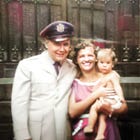Dear Readers,
A warm hello to you, all! Here we are, at the start of November, well into the glorious amber, bronze, and copper season which signals senescence and the coming leaf abscission. Receding chlorophyll reveals leaves’ true colors, the rising red anthocyanin of the maples, and the yellow pigmentation, xanthophyll, of beeches, birch, and ash. Please forgive me for my modest horticulture knowledge. I’m drawn to seasonal changes as they relate to plants. Since I love words and etymology, I enjoy using the botanical terms I learned in school, landscapes, and gardens. Fall is here! Time to plant a tree!
Oaks are russet at the tail-end of the season. Defying the cold, they hang on to their color and their acorns. Massive hickories — pignuts, shagbarks, and bitternuts — glow yellow now but fall breezes threaten to twist and loosen the dehiscent leaves and nuts.
I don’t rake leaves anymore, I haven’t for many years. Allow them to tumble, and drop, I say. They crumble as they decay, exuding their sweet, peaty, earthy fragrance and valuable humus.

Shane Boule’s work on Medium examines the conundrums of psyche adoptees face. I want to highlight his recent piece, Understanding the Unseen Journey of Adoptees, which resonates with the mood of separation and fragmentation.
“In adoption, the journey is divided into three half-lives that others may not experience. The first half-life begins with the separation from biological roots, heritage, culture, and identity — a rupture that creates the core wound of abandonment. These half-lives represent distinct phases of an adoptee’s experience, each with its own set of challenges and complexities that profoundly differ from the normative life journey. This break, unseen by the eye, reverberates through the adoptee’s life, impacting their sense of self and belonging.”
Back in May, I wrote about identity, a universal theme for adoptees. Even if and when we learn our truths, we aren’t fully compensated for what we lost.
Identity is an ongoing theme for adoptees.
Gleaning Our Stories
If you’ve followed me for a year or two, you may have read my memoir, I Must Have Wandered, and know how strongly I feel about the rights of adoptees to our original records, our true identity, and our natural heritage. You will have heard about my reunion with my biological kin. You might know that South Carolina recently enacted an adoption bill that states that adult adoptees may obtain a copy of their original birth certificate and accompanying evidence of adoption with the consent of the biological parent and applies retroactively, regardless of the date on which the adoption was finalized.
Though imperfect law, it allowed me access to my birth records. I printed and filled out the form from the SCDHEC (Health and Environmental Control) and mailed it on the effective date, May 29th, 2023, with my check and my first mother’s death certificate. At the end of August, it arrived at my Delaware home — the uncertified copy of my South Carolina Original Birth Certificate, along with a few court documents.
Unfolded, it seemed unassuming. I was thrilled to have it, but I’d waited so long while it had lain dormant in the State’s vault for seventy-two years, out of my reach, secret, and forbidden. Because no one must know of the sin by which I was conceived. And no one, least of all me, should know my parent’s names.
I scanned it for anything I hadn't learned in my search and reunion. No surprises. No contradictions. I’d worked diligently to restore my identity without help from my birth state and with little information from the adoption agency that placed me in 1952.
Charleston Catholic Charities responded quickly to my email requesting the full adoption file. More than ever, I was confident I should get my pre-adoption records. I had the right to claim them. The robust envelope was packed with documents and letters — one hundred and fifty pages — gleaned from agency archives, sorted, meticulously copied, and placed in chronological order by a kind adoption worker. When it arrived on September 5th, the hours I spent with the contents felt ceremonial. Reverential. I held my breath at the true record of my existence.
Until I had the O.B.C., Catholic Charities was constrained by law not to leak more information than they had to find my mother in 1993. Not after the reunion with my mother, nor with the DNA results that revealed my paternal side. It took persistence — a fight and a change of the law. The wait for my records is over, but full adoptee rights have not yet been restored in South Carolina.
Until next time,
Mary Ellen





